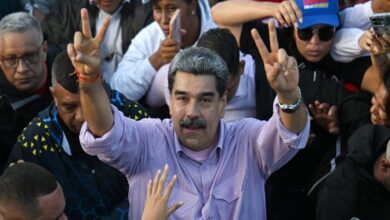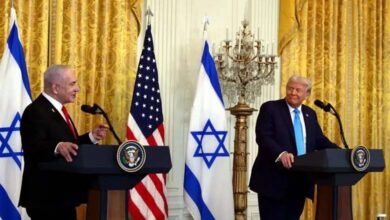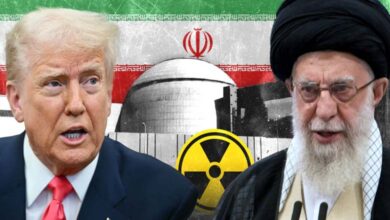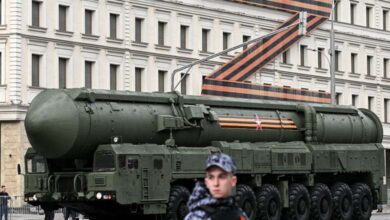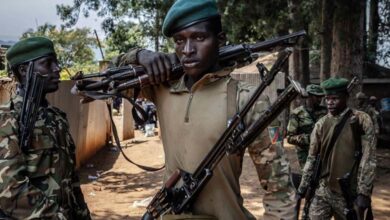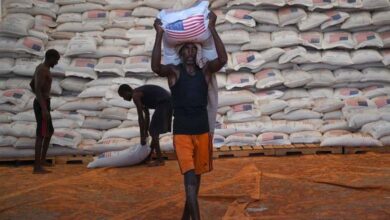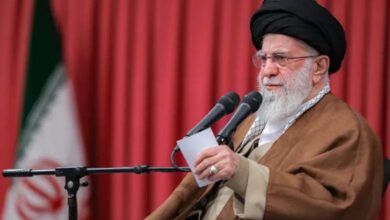Iran Drives Istanbul Nuclear Talks into a Deadlock
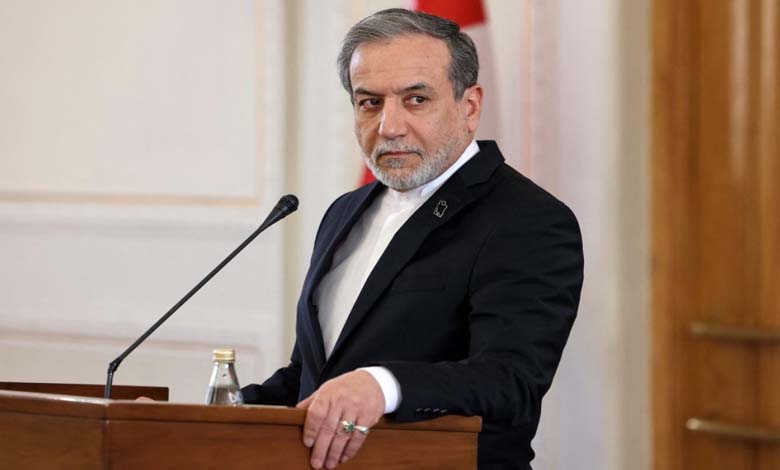
The Iranian Foreign Minister has reaffirmed Tehran’s refusal to halt or limit uranium enrichment, directly opposing one of the main demands of the United States and the European troika.
Ahead of planned nuclear talks in Istanbul with the UK, France, and Germany, Iran reiterated its unwavering stance on uranium enrichment, describing it as a “national right.” This position directly contradicts Western efforts to severely restrict Iran’s nuclear activities to prevent the development of a nuclear weapon.
-
Talks with the US on the nuclear file?… Iran responds
-
Iran Reveals Nuclear Target Bank Inside Israel
The Istanbul meeting, set for Friday, will be the first diplomatic encounter since the 12-day war between Iran and Israel last month, during which the United States launched airstrikes on Iranian nuclear facilities.
Iranian Foreign Minister Abbas Araghchi stated Monday that the country will not abandon its nuclear program, despite the “severe damage” inflicted by American airstrikes, emphasizing that uranium enrichment has become a “symbol of national pride.”
-
Nuclear Talks: Iran Rejects Washington’s Proposal, Prepares Alternative Offer
-
Nuclear Talks: Iran Rejects Washington’s Proposal and Prepares an Alternative
In an interview with Fox News anchor Bret Baier, Araghchi said, “The program is currently halted due to extensive damage, but we cannot give up enrichment. It is an achievement of our scientists and now a matter of national dignity.”
Former U.S. President Donald Trump responded swiftly on his platform, Truth Social, saying, “Of course the sites are destroyed. As I said before—we’ll bomb them again if needed.”
-
Iran Criticizes U.S. Sanctions Policy Ahead of Key Cairo Nuclear Meeting
-
In the Third Round… Nuclear Talks Return to Muscat with Possible Extension
The 2015 Joint Comprehensive Plan of Action (JCPOA) placed strict limitations on Iran’s nuclear program in exchange for sanctions relief. However, the agreement began to unravel in 2018 when the Trump administration withdrew and reinstated sanctions on Tehran.
While France, Germany, and the UK expressed continued support for the deal, their efforts to shield Iran from U.S. sanctions failed. Many Western companies exited the Iranian market, deterred by the economic uncertainty and high inflation.
-
Washington Charts a New Course for Nuclear Negotiations with Tehran by Sidelining Europeans
-
Iran’s Nuclear Program: Tehran Awaits Trump’s Message via an “Arab Country”
Iranian Foreign Ministry spokesman Esmail Baghaei criticized the European parties for failing to uphold their commitments, accusing them of negligence.
In addition to the Istanbul meeting, Tehran will host a separate trilateral session on Tuesday with representatives from China and Russia. Beijing expressed its intent to play a “constructive role” in reviving dialogue and ensuring a balanced outcome.
-
Iran Denies Involvement in Trump Assassination Attempt after U.S. Accusations
-
Adulterated Fuel Halts Iran’s President’s Trip… and a Taxi Saves the Day
The European powers accuse Tehran of breaching the 2015 agreement and threaten to trigger the “snapback mechanism,” which would restore UN sanctions if Iran fails to comply.
According to the International Atomic Energy Agency (IAEA), Iran is the only non-nuclear state enriching uranium to 60% purity—just short of the 90% threshold required for weaponization, and far above the JCPOA limit of 3.67%.
-
750 Tons: Massive Iranian Arms Shipment Bound for Houthis Intercepted
-
Talks with the US on the nuclear file?… Iran responds
Baghaei described the use of the snapback mechanism as “baseless, unjustified, and unethical,” insisting that Iran’s response was provoked by Western failures to honor their side of the deal.
Since the U.S. withdrawal, Iran has significantly ramped up its nuclear activities. While Tehran maintains its program is for peaceful purposes, Western nations and Israel remain highly skeptical.
-
IAEA Announces Departure of Inspectors from Iran
-
Ground Activity at Fordow: Is Iran Reorganizing Its Nuclear Site?
On June 13, Israel launched a large-scale military operation on Iranian targets, leading to a 12-day war. On June 22, the U.S. joined by bombing key nuclear facilities in Fordow, Isfahan, and Natanz. The full extent of the damage remains unclear.
Baghaei stated Monday, “At this stage, we have no intention of speaking with the United States.” Five rounds of indirect negotiations through Oman now appear to be on hold. The gap between Washington and Tehran over uranium enrichment remains wide, with the U.S. administration calling it a “red line.”


